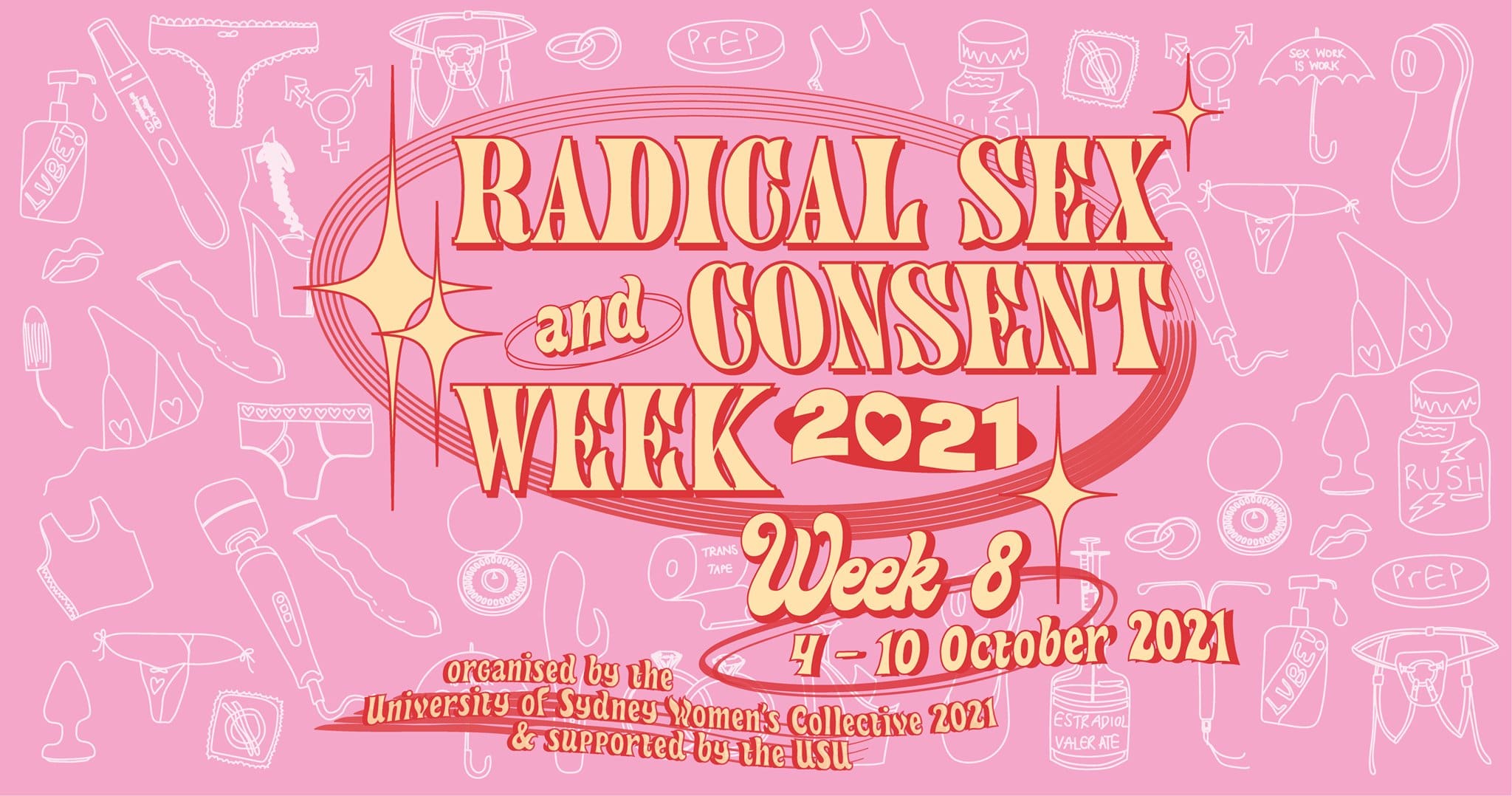In spite of collective Zoom fatigue, the Women’s Collective’s Radical Sex and Consent Week from October 4 to October 10 served up a smorgasbord of enticing events. Ranging from a salacious open-mic showcase to workshops surrounding reproductive and transformative justice, the tantalising line-up represented a hopeful and welcome return of this annual event hosted by the collective.
In a world that continually fails to properly educate children and adolescents about sexual health, violence and justice, Radical Sex and Consent Week plays a vital role in empowering students, by offering them opportunities to seek a rounded sexual education that places both pleasure and politics at the forefront. However, the event has faced sudden cancellations in the past, meaning that its return was well-anticipated after a two-year hiatus.
In the lead-up to the week, many Women’s Collective members shared the numerous reasons why this re-education is so critical. “I need radical sex ed because it is sexual violence prevention.” “Because race has been inherent to my sex and dating life, but the PDHPE curriculum does not even mention it.” “Because enforcing the narrative of shame, not support, is not enough.”
Live events were littered throughout the week and sweetly complemented by podcasts and interviews. Radical rethinking kicked off on Monday night with an interactive reading group on Reproductive Justice (RJ). Participants pored over a triptych of readings beforehand on Indigenous birthing justice, birth control and carceral reproductive justice and consent under the prison state.
RJ is a movement that emerged out of the United States that has since been exported around the world to address the bodily autonomy of marginalised communities. Attendees explored the importance of birthing on Country for Indigenous people, considering the colonial devastation wrought upon Indigenous birthing cultures and the Indigenous body of knowledge surrounding midwifery.
Currently, incarcerated people are often forced to undergo sterilisations and vasectomies performed in prisons, as prisons are coerced by sickening financial incentives. The reading group also analysed reproductive freedom and its intersection with gendered burdens of undergoing and educating themselves about contraceptive measures. Overall, it provided a space for participants to discuss how the archetypal sexual education is either charged with stigma towards marginalised communities, or fails to mention their unique reproductive challenges entirely, restricting a holistic understanding of reproductive justice.
Thursday saw a constructive crossover between Rad Sex week and this semester’s array of Rad Ed events with the Transformative Justice Workshop. After a collaborative discussion about how to identify and address harm and visualise accountability, this workshop equipped attendees with concrete methods to effectively approach personal and inter-personal de-escalation, harm minimisation, and how to empathetically respond to difficult conversations, such as a disclosure of sexual violence. Students were tasked with various scenarios to apply these approaches; though the use of scenario-based learning may recall a cursory Year 10 PDHPE sex ed class, these scenarios were a far cry from rehearsed stigmatised interactions. Groups collaboratively approached common yet uncomfortable dilemmas such as reaching out to friends with fears for their wellbeing. The event had a practical focus; by building an individual arsenal of tangible skills, attendees left feeling empowered to practice what they learnt, oriented towards community.
The week maintained an important sense of community spirit and fun with live-drawing and yoga events which offered a creative and kinaesthetic escape from the solitary monotony of isolation. As well as welcoming guests, students provided their own entertainment by braving the Zoom-crowd at an open-mic night. Performances ranged from raunchy to endearingly earnest as participants bared their souls, first loves or most embarrassing moments.
Another highlight for many was the ‘Ask a Mum’ instagram live, where many sought the wisdom that only parents seem to possess. Guest mums shed valuable insights on how to meet your partner’s parents for the first time (“Don’t water yourself down!”), how to navigate a friendship break-up (“It’s okay to go through a grieving process”) and the top tips for moving out of home (“You need to save your money and be prepared!”).
The WoCo instagram still boasts a feast of video content, such as, “I Am Everything and Nothing”, where four drag artists (Jay Gardener, Marlena Dali, Lusty Lovelace, Inah Demons) unbosomed themselves to the camera, exploring diverse gender experiences and the future of drag. Non-binary artists also spoke of their experiences of exclusion, which manifest as barriers to performance. Drag comes in many diverse and varied styles, and the artists illuminated how they intersect with unique experiences of gender expression and gender identity.
WoCo’s very own Amelia Mertha and Shani Patel also served up a delightful podcast platter, with a discussion on inter-racial dating. Mertha and Patel discussed the concept of ‘racial preferences’ as fetishisation, weeding out problematic white people in dating apps and experiences of white people treating race as a ‘burden’ in past relationships. The podcast had an important message surrounding boundary-setting in discussing race in inter-racial relationships – for some, this discussion is crucial, while it may resurface trauma for others. Ultimately, Patel shared that “relationships are ideally a place to learn, and grow, and love one another, but like anything else, anti-racism can and should happen within them”.
This year’s Rad Sex and Consent Week, albeit online, ultimately proved why this event remains an essential force that breathes into campus life and education.





